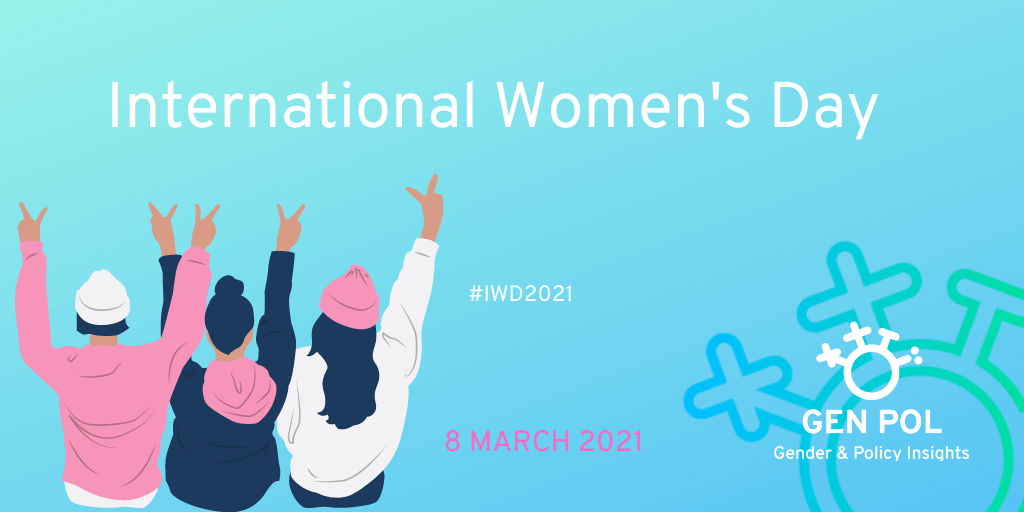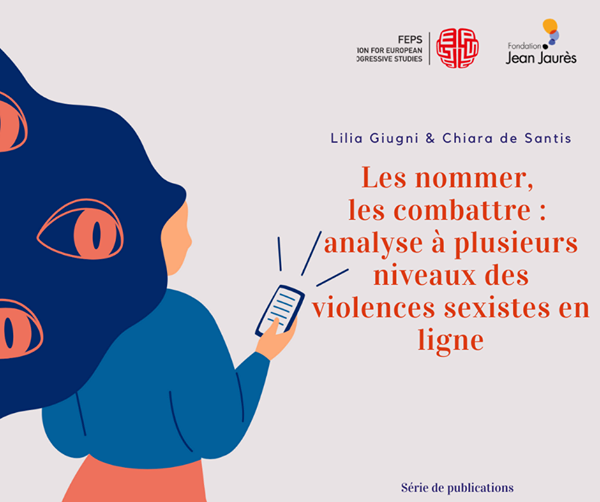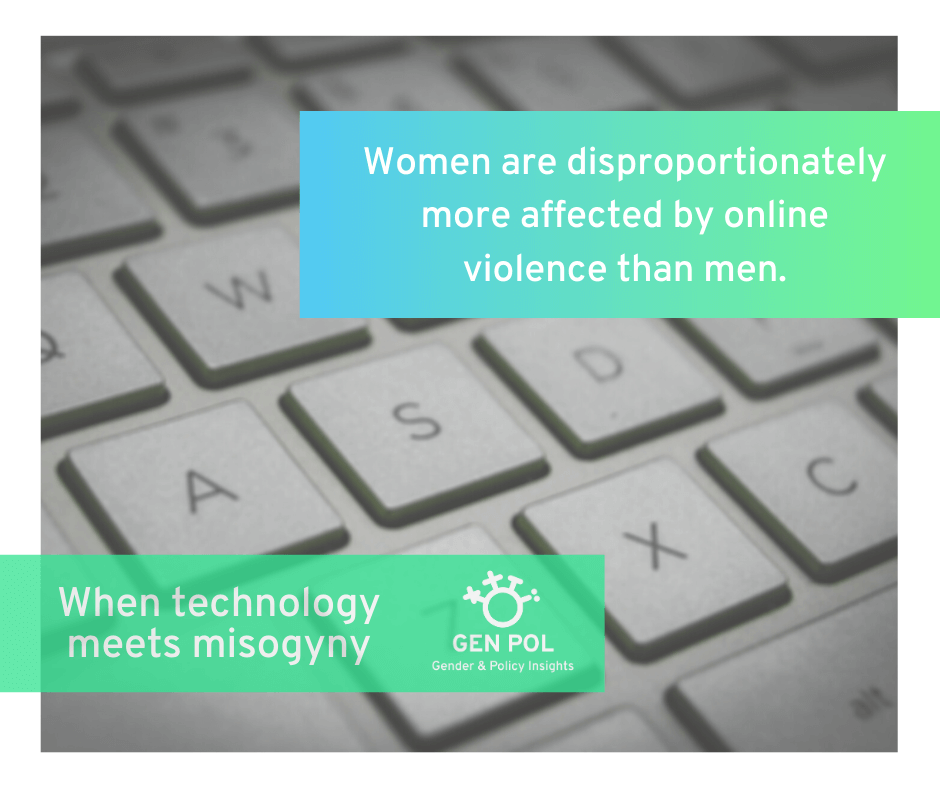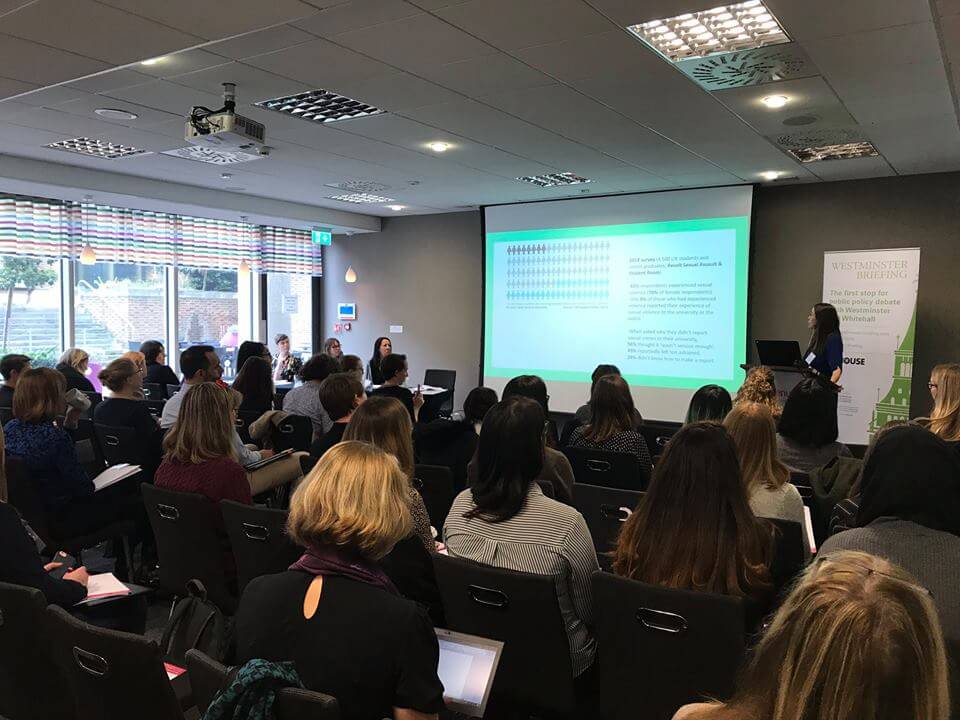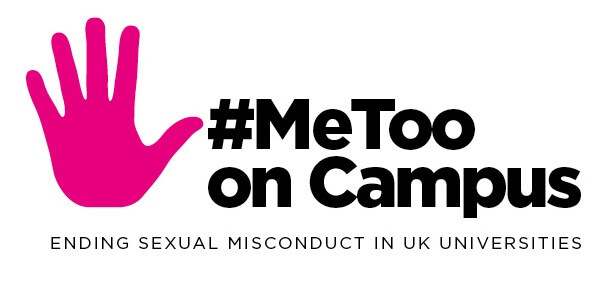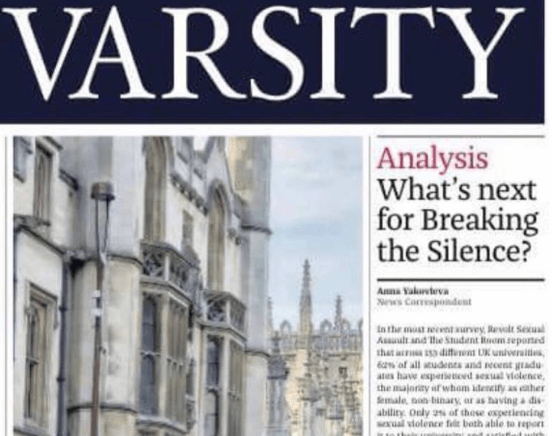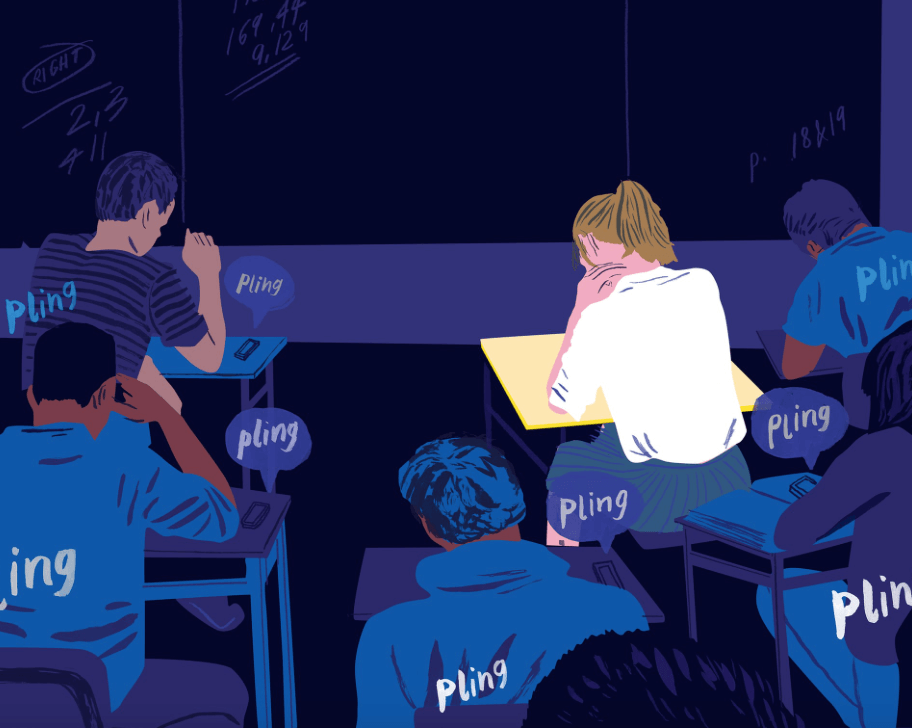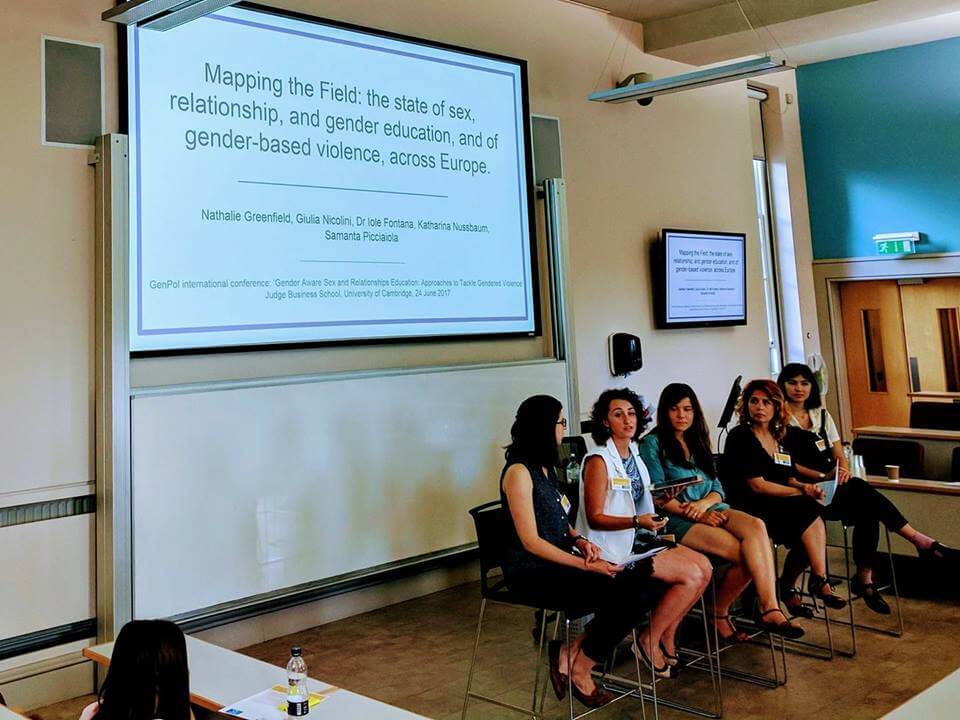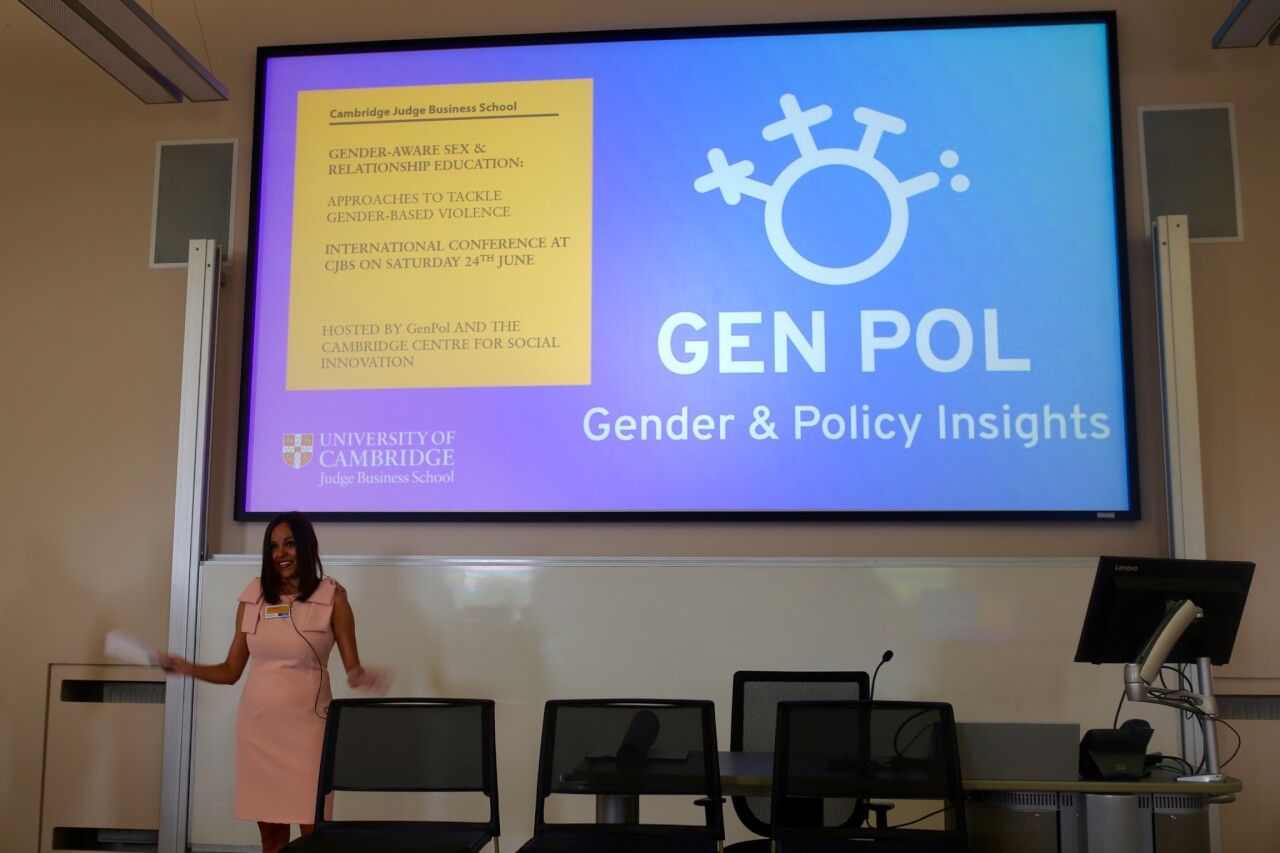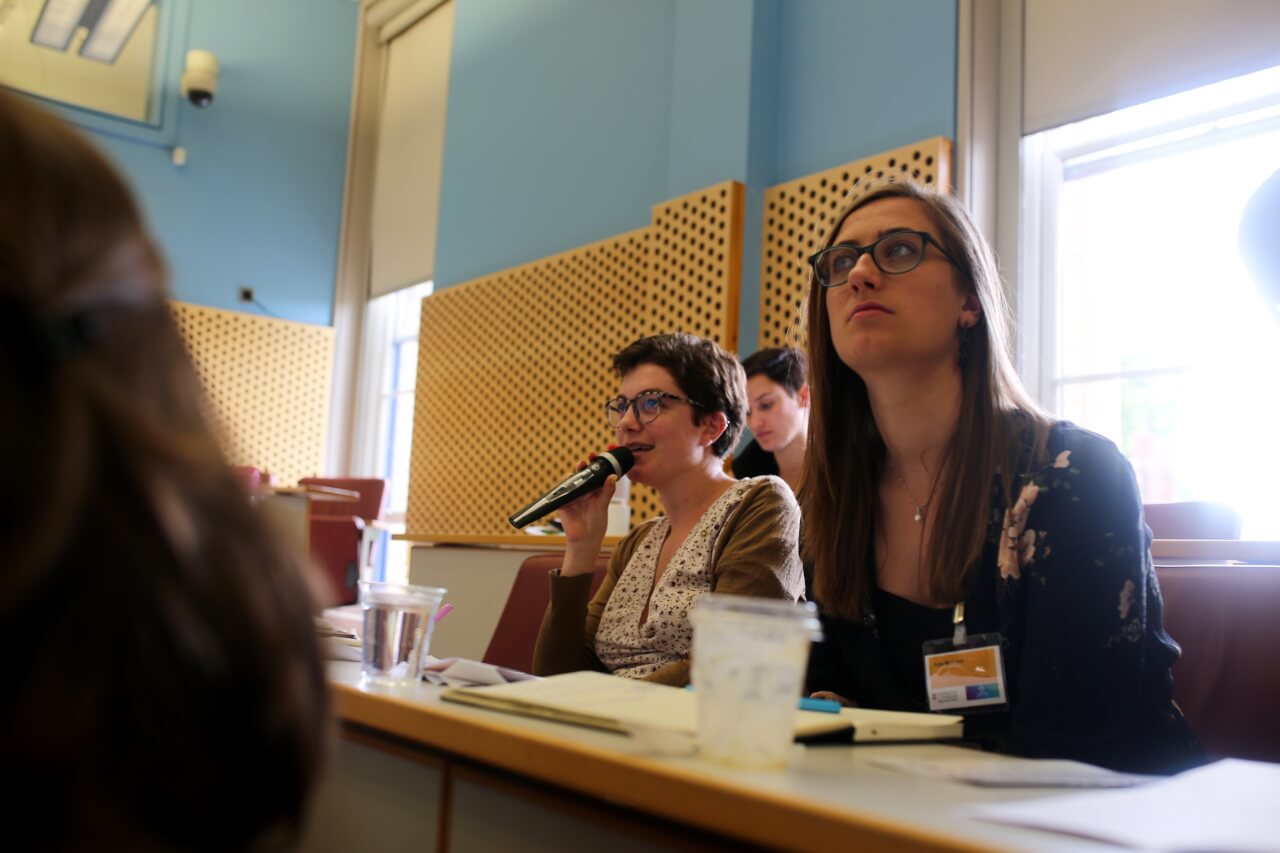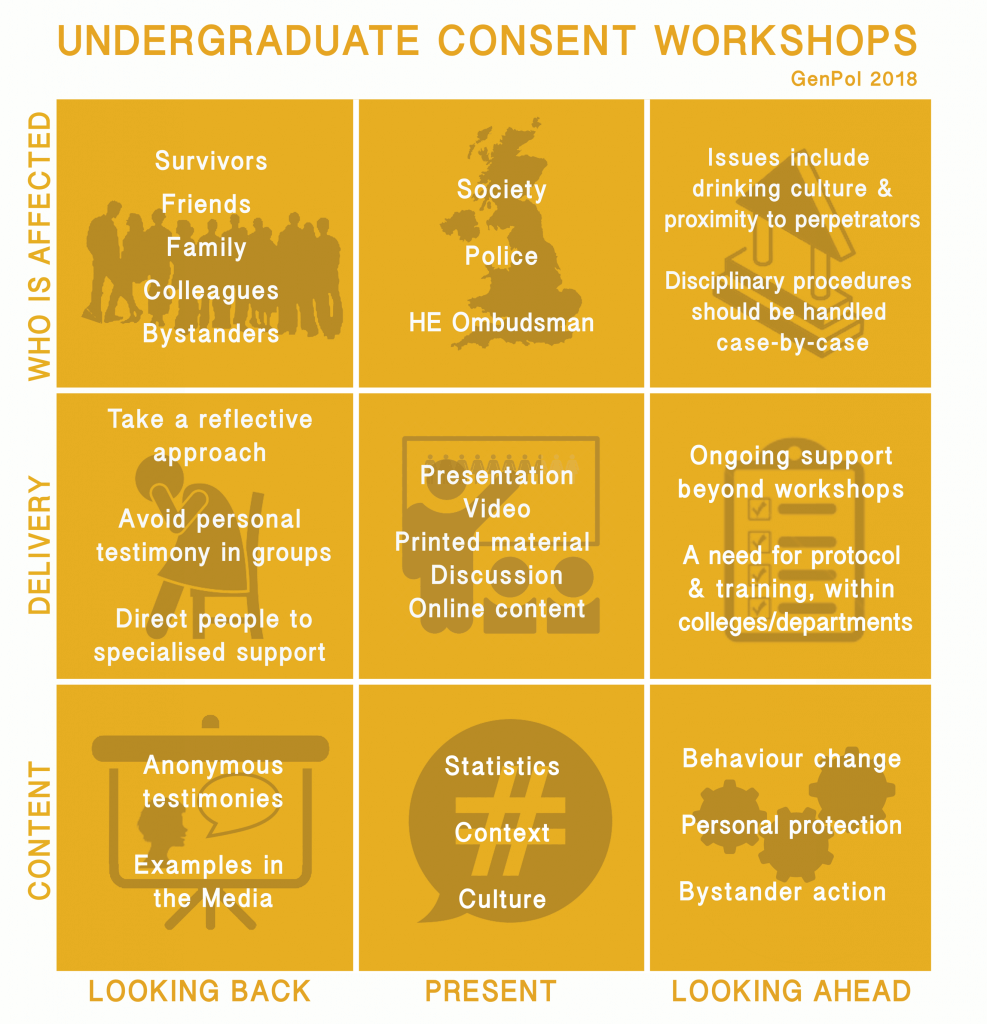
We are delighted to present GenPol’s report on consent training and sexual violence prevention in British universities. Through desk research, focus groups, workshops, and an online survey, we have aimed to assess how current training practices help prevent sexual violence on campus, and what else could be done to support practitioners and enhance the impact of prevention work. This report was born from the collaboration between GenPol and Dr Tom Dougherty, a philosopher who researches consent at the University of Cambridge. It has seen us working for many months with university staff, students, trainers, sexual violence experts and gender equality activists.
Our commitment to ending sexual violence
As think tank researchers and gender equality advocates, at GenPol we work closely with universities, their students and personnel. Many of our researchers are, or have been, academics, and many of our interns study at, or have just come out of, university. Thus, we are painfully aware of the existence of sexual harassment and assault on campus. It saddens and outrages us beyond words, and we are committed to do our bit to end it. We hope that this report may be a useful tool for peer-to-peer trainers, student leaders and activists, as well as for sexual violence professionals and all those who work to tackle gender-based abuse in all its forms. We dedicate it to all victims and survivors, whose courage and resilience is a never-ending source of inspiration.
Our findings
Our data analysis clearly shows that consent training is increasingly perceived as an effective violence prevention tool by trainers and beneficiaries alike, and adopted by more and more universities nation-wide. We identified a number of good practices for consent workshops, including break-away group discussions, scenario and myth-busting exercises, and the use of national and local statistics on assault and harassment. However, our report also highlights existing challenges and areas for improvement. These include the reluctance of (mostly male) students to attend consent workshops, existing time constraints, and the fact that trainers struggle to find a suitable language and cover a plethora of complex topics.
Above all, we found that training as a stand-alone tool is not particularly successful. In fact, trainees turn cynical and lose motivation if they do not see their institution truly committing to address the problem, and an institutional culture of sexual respect is not developed. Specifically, our respondents complained about the fragmentation of sexual violence reporting mechanisms and disciplinary procedures across universities, and even colleges within the same institution. They also felt that specifically trained personnel and sexual violence professionals (including therapists) should support consent trainers.
Building on this, we issued a set of comprehensive recommendations for peer-to-peer trainers, student unions, universities, sexual violence professionals and other relevant stakeholders. They include:
-
The introduction of transparent reporting mechanisms for sexual harassment, assault and discriminatory behaviours across universities nation-wide (ideally, an anonymous online reporting system should be developed aside non-anonymous reporting forms, easily accessible on universities’ websites);
-
The introduction of clear, appropriate and well-advertised disciplinary measures, and of specific compulsory training on gender-based violence and discrimination for members of staff;
-
Hiring specially trained therapists to support survivors of abuse and their loved ones, as well as students and staff with specific pastoral duties;
-
Offering multiple forms of consent training and spreading teaching over different sessions, so that complex topics can be dealt with, and information and ideas can sink in;
-
Using in consent training well-tested delivery methods such as breakaway groups (with the double option of single-gender groups and mixed ones), open and interactive discussions, myth-busting, scenario and privilege-related exercises, local case studies, reflections on the differences between legal and ethical concerns);
-
Designing consent training to change not only beliefs but behaviours (through exercises aimed at developing empathy, processing difficult emotions, and offering creative strategies to identify and respond to problematic behaviours);
-
Mapping existing consent-related resources and making them available to the student community;
-
Carefully monitoring and evaluating consent training.
For further details, please see the report below. This study is part of a broader research project started with ‘Can Education stop abuse?’, a comprehensive policy paper in which we examined the linkage between consent-centred sexuality education and gender-based violence on an European level.
Happy reading!
















